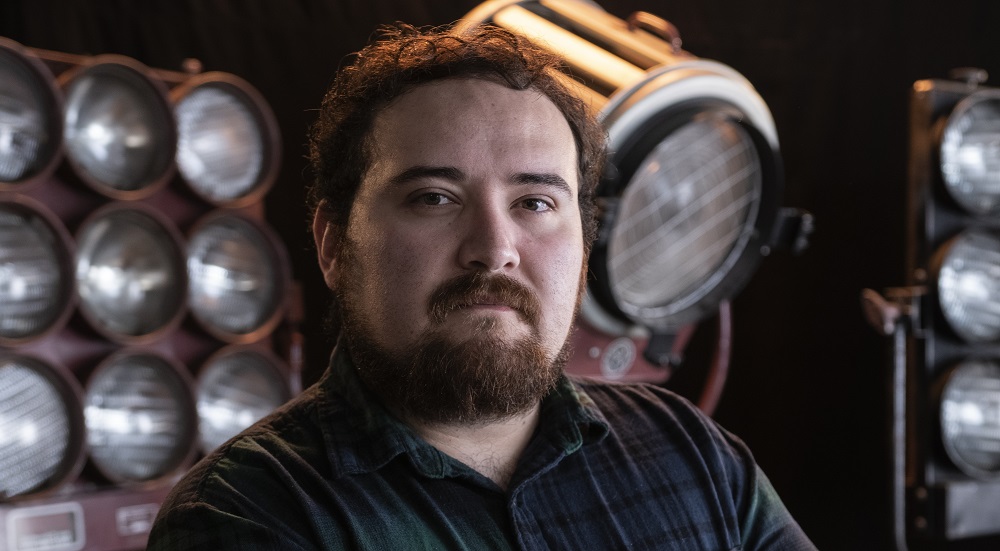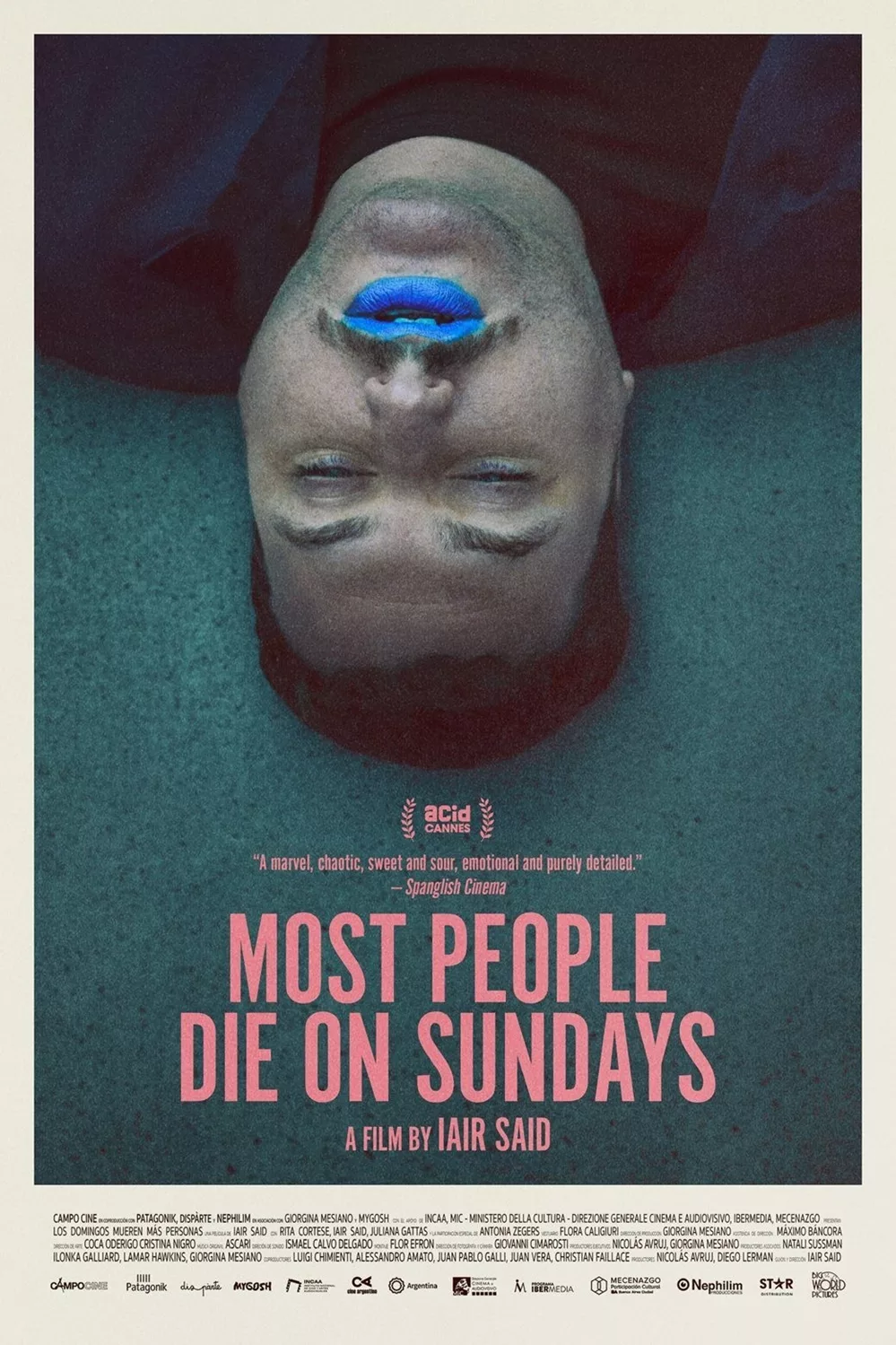We first encounter David (Iair Said), a robust gay Jewish man, shirtless and crying on the floor of a hotel room, desperately begging his offscreen romantic partner not to leave him. That uncomfortable and utterly unflattering incident kicks off the series of small cataclysms that befall him in the tightly constructed Argentine tragicomedy “Most People Die on Sundays,” which Said also wrote and directed as his sophomore feature.
Back in Argentina for his uncle’s funeral—after some time studying abroad and in the aftermath of the messy breakup—an apathetic David vows to finally get his driver’s license, while avoiding visiting his comatose father in the hospital. A trip to a restaurant’s drive-up sparks quotidian disagreements between his mother Dora (a delightful, gruff Rita Cortese) and his controlling sister Elisa (Juliana Gattas). At a birthday dinner where most Jewish rituals are observed, and others willfully ignored, David’s aunt Silvia (Antonia Zegers) shows her more spontaneous side. Said’s finely calibrated writing produces situations that organically and succinctly flesh out the interpersonal dynamics in his family.
All the women in his life offer conflicting but always piercing comments on David’s weight. They express their collective disappointment at his lack of driving skills and hint at other gripes that don’t involve him (usually related to medical bills or how expensive everything is there). And yet, their contentious back-and-forth stands grounded on a begrudging intimacy and a strange sense of belonging and affection.
No line of dialogue goes unused in furthering our understanding of how these people care for one another as best they can. This results in characters strongly defined as individuals in a reality humorously driven by the exhausting intricacies of being alive. Said’s unassumingly rich dramatic world, women and queer characters at its center, operates like the worlds of Spanish master Pedro Almodóvar, albeit more emotionally muted and visually restrained. Still, like Almodóvar, Said keeps the specificity of his character’s mannerisms and customs, mining them for comedy and sorrow in similar quantities.
Coated in the cautiously playful sounds of composer Ascari’s score (the sonic version of someone sighing or shrugging at David’s mishaps), sequences unfold with the naturalness of a handheld camera that follows the characters inside their residence or Dora’s car. Some of what happens to David is a mere product of clumsiness, bad luck even; others are the consequence of his impulsive decisions, like his dependence on sleeping pills. Said maintains plausibility throughout, never plotting far-fetched tribulations, but just outrageous enough to cause the viewer to cringe nervously.
David only speaks of his fears of loneliness once in a heart-to-heart with Dora. The mother and son have been incapable of accepting that their husband and father might never wake up. Said misses opportunities to explore the origins of Dora’s no-nonsense fortitude or her devotion to David’s dad more profoundly, which could have made more use of an already memorable character and expand on why David is who he is.
Yet, Said ensures David’s eagerness for emotional and sexual fulfilment is made clear as he seeks connection with any man that offers him the slightest semblance of kindness: a driving instructor, a polite neighbor, and even a handsome doctor become the objects of his desire to feel desired. None of his attempts yields the exchange David has in mind. In front of the camera, Said’s performance reads one-note by design, with no outburst of rage or joy, but rather a static inexpressiveness. And while one might wonder what it would have looked like to see David lose control completely, that would have been the most traveled path. The lack of flashy catharsis feels welcomed and fitting for the arc of this adrift man. Near the end, David and Dora’s inner malaise manifests in physical injuries, as if the brokenness they are trying unsuccessfully to hide from each other has weakened their bones. Said wraps the concise narrative in a lovingly predictable (but not saccharine) manner, providing an acceptable resolution for the dead and a new open door for the struggling living.




















